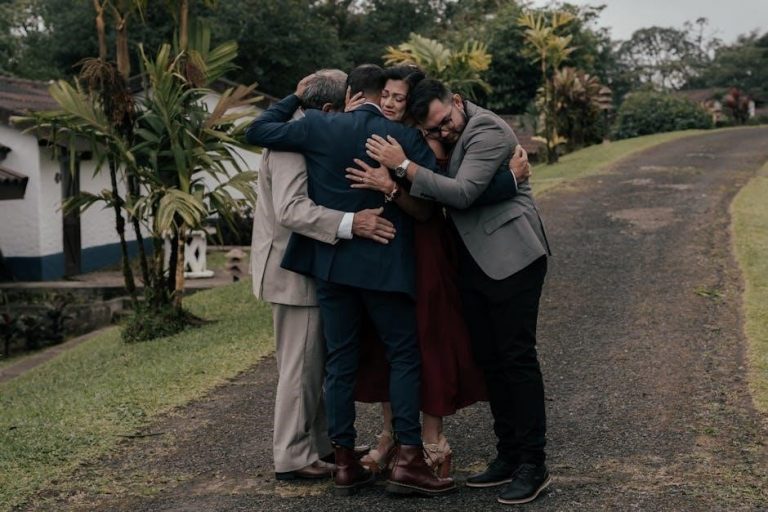
Dietrich Bonhoeffer’s Life Together, written in 1938, explores the essence of Christian community, emphasizing the balance between theological depth and practical fellowship, inspiring modern discipleship.
1.1 Overview of the Book
Life Together is a profound exploration of Christian community, reflecting Bonhoeffer’s experiences in an underground seminary during Nazi Germany. The book emphasizes the importance of living out faith collectively, balancing solitude and fellowship, and maintaining spiritual discipline. It challenges readers to move beyond abstract theology, offering practical insights into communal living and discipleship. Written in 1938, it remains a timeless guide for fostering authentic Christian relationships and understanding the essence of church life. Its relevance endures, inspiring modern believers to embrace true community.
1.2 Historical Context of the Work
Written in 1938, Life Together reflects Dietrich Bonhoeffer’s experiences amid the rise of Nazi Germany. As part of the Confessing Church, Bonhoeffer resisted the regime’s influence on religion. The book emerged from his leadership at the Finkenwalde underground seminary, where he trained pastors opposed to Nazi ideology. This historical backdrop shaped his emphasis on authentic Christian community, prayer, and spiritual discipline, offering a counter-cultural vision of faith amidst persecution and societal upheaval.

Key Themes in “Life Together”
Dietrich Bonhoeffer’s Life Together thoughtfully explores themes of Christian community, the transformative power of prayer, and the necessary balance between solitude and fellowship, enriching modern Christian living.
2.1 The Importance of Christian Community
Bonhoeffer underscores the vital role of Christian community, emphasizing its divine origin and purpose. He argues that true fellowship reflects Christ’s presence, enabling believers to embody His teachings collectively. Through shared worship, prayer, and service, the community becomes a living testament to God’s grace, fostering spiritual growth and mutual support. Bonhoeffer’s vision challenges individuals to move beyond isolation, embracing communal life as essential to discipleship and the manifestation of Christ’s Body on earth.
2.2 The Role of Prayer in Community Life
In Life Together, Bonhoeffer underscores prayer as the cornerstone of Christian community, uniting believers in Christ and reflecting His intercession for the world. He advocates for intentional, communal prayer, emphasizing its power to transcend individualism and foster unity. Bonhoeffer encourages believers to embrace prayer as both a personal and shared discipline, rooted in Scripture and lived out in daily life, ensuring that prayer remains central to the community’s spiritual vitality and witness.
2.3 The Balance Between Solitude and Fellowship
Bonhoeffer emphasizes the necessity of solitude for personal reflection and prayer, while also highlighting the importance of fellowship for spiritual growth and communal worship. He argues that both are essential for a healthy Christian life, as solitude prepares the individual for authentic community, and fellowship strengthens the believer through shared experiences and mutual encouragement. This balance is central to his vision of Christian living, fostering a deeper relationship with God and others.

Structure of the Book
Life Together is structured around reflections on daily Christian community life, solitude, and fellowship, offering practical wisdom for spiritual growth and communal living rooted in scripture.
3.1 The Daily Life of the Christian Community
Dietrich Bonhoeffer emphasizes the rhythms of daily life as foundational to Christian community. He highlights the importance of shared prayer, Scripture reading, and communal meals, fostering unity and accountability. Bonhoeffer stresses that these practices, rooted in Jesus’ teachings, create a sacred space for spiritual growth and mutual support, countering individualism and isolation. This daily discipline, he argues, strengthens believers to live as the Body of Christ in a fragmented world, reflecting God’s love through tangible fellowship.
3.2 The Day with Others and the Day Alone
Bonhoeffer emphasizes the necessity of balancing communal life with personal solitude. The day with others involves shared prayer, worship, and fellowship, fostering unity and accountability. Conversely, the day alone allows for introspection, prayer, and intimate communion with God. This rhythm prevents extremes of isolation or overwhelming community demands, ensuring a healthy spiritual life. Bonhoeffer’s insights highlight the importance of both togetherness and solitude in deepening discipleship and sustaining Christian community.
3.3 The Nature of Christian Fellowship
Bonhoeffer explores the essence of Christian fellowship as a divine gift rooted in Christ, emphasizing its spiritual and practical dimensions. He highlights how believers, united in faith, share life’s joys and struggles, transcending individualism. Fellowship, he argues, is not merely social but a sacred bond reflecting God’s grace. This communal life, grounded in prayer, service, and mutual support, embodies the Body of Christ, fostering a deeper understanding of discipleship and the kingdom’s presence amidst the world’s challenges.

Theological Concepts
Bonhoeffer’s theological framework emphasizes the Sermon on the Mount, the Church as Christ’s body, and the transformative power of confession and forgiveness in fostering authentic community life.
4.1 The Sermon on the Mount and Its Relevance
In Life Together, Bonhoeffer underscores the Sermon on the Mount as a cornerstone of Christian ethics, emphasizing its call to radical discipleship and self-sacrificial love. He highlights Jesus’ teachings on forgiveness, humility, and non-violence as essential for fostering genuine community. By grounding these principles in real-life applications, Bonhoeffer bridges the gap between spiritual ideals and practical living, challenging believers to embody Christ’s teachings in their daily interactions and communal life, reflecting God’s will on earth.
4.2 The Church as the Body of Christ
Bonhoeffer emphasizes the church as the Body of Christ, a living, spiritual entity united in Him. He highlights the interconnectedness of believers, reflecting Christ’s presence and work in the world. This unity transcends individualism, illustrating the church’s role as a divine community. Bonhoeffer’s vision underscores the church’s essential identity and purpose, calling believers to embody Christ’s love and mission collectively.
4.3 The Role of Confession and Forgiveness
Bonhoeffer underscores confession and forgiveness as vital to Christian community, enabling transparency and reconciliation. He argues that acknowledging sin fosters humility and deepens fellowship, reflecting Christ’s grace. This practice, rooted in vulnerability and accountability, strengthens spiritual bonds and promotes mutual encouragement, embodying the redemptive power of Christ within the community.

The Historical Context of the Underground Seminary
Bonhoeffer’s leadership at the Finkenwalde Seminary, a secretive theological training center, defied Nazi interference, nurturing pastors committed to faith and resistance during a tumultuous era.
5.1 The Finkenwalde Community
The Finkenwalde Community was a pivotal underground seminary led by Dietrich Bonhoeffer, offering refuge for theologians opposing Nazi ideology. Established during the Nazi regime’s rise, it provided a space for young pastors to study theology untainted by state control. Emphasizing communal living and practical faith, the community mirrored Bonhoeffer’s vision of authentic Christian life. Despite constant persecution threats, Finkenwalde became a symbol of resistance, deeply influencing Bonhoeffer’s theological ideas and actions, including his later involvement in anti-Nazi efforts.
5.2 The Influence of the Confessing Church
The Confessing Church played a pivotal role in shaping Bonhoeffer’s theology, resisting Nazi infiltration and advocating for biblical authority. Its courageous stance against state-controlled religion deeply influenced Bonhoeffer’s vision of authentic Christian community, as outlined in Life Together. The church’s commitment to theological integrity and spiritual resistance inspired Bonhoeffer’s emphasis on fidelity to Christ amidst societal pressures, fostering a community grounded in faith and moral conviction.
5.3 The Impact of Nazi Persecution on the Church
The Nazi regime’s persecution severely impacted the Church, leading to the closure of seminaries like Finkenwalde, where Bonhoeffer taught. This repression forced the Confessing Church underground, shaping Bonhoeffer’s emphasis on authentic faith amidst oppression. The societal pressures heightened the urgency for Christians to live out their beliefs courageously, influencing the themes of resilience and communal support in Life Together.

The Impact of “Life Together”
Life Together has profoundly influenced modern Christian communities, reshaping understandings of fellowship and discipleship, while its timeless insights continue to inspire spiritual growth and communal living globally.
6.1 Influence on Modern Christian Communities
Dietrich Bonhoeffer’s Life Together profoundly impacts modern Christian communities by emphasizing the importance of intentional, authentic fellowship. Its teachings on shared spiritual practices, accountability, and communal living continue to inspire movements seeking deeper discipleship. The book bridges historical context with contemporary relevance, offering practical wisdom for navigating communal challenges in today’s diverse church environments.
6.2 Reception and Reviews of the Book
Life Together has received widespread acclaim for its profound insights into Christian community. Reviewers, like John Richter, highlight its timeless relevance and practical wisdom. The book has inspired countless readers, offering a compelling vision of communal faith. Its influence extends beyond theology, shaping modern Christian practices and fostering spiritual renewal. Widely studied and referenced, it remains a cornerstone of theological literature, continuing to guide believers in living out their faith authentically.
6.3 The Book’s Legacy in Theological Thought
Dietrich Bonhoeffer’s Life Together remains a cornerstone in theological discourse, shaping modern understandings of Christian community and spiritual formation. Its emphasis on lived faith and collective worship continues to inspire scholars and believers alike, offering timeless insights into the nature of fellowship and discipleship in a fragmented world.

Challenges to Christian Community Today
Modern challenges include individualism, declining spiritual discipline, and technology’s impact on genuine fellowship, prompting a renewed focus on Bonhoeffer’s call for authentic Christian community.
7.1 Individualism vs. Communal Living
In Life Together, Bonhoeffer critiques the rise of individualism, arguing it undermines authentic Christian community. He emphasizes the biblical call to live interdependently, as seen in the early church. Western culture’s focus on personal autonomy often hinders communal life, leading to isolation. Bonhoeffer challenges believers to embrace vulnerability and mutual accountability, reflecting Christ’s selfless love. This tension remains relevant today, urging Christians to prioritize fellowship over self-centeredness, fostering a deeper, shared spiritual life rooted in grace and service.
7.2 Maintaining Spiritual Discipline in Modern Life
Maintaining spiritual discipline in today’s fast-paced, technology-driven world presents unique challenges. Bonhoeffer’s teachings emphasize the importance of prayer, reflection, and communal practices to sustain faith. Modern Christians must intentionally prioritize these disciplines amid distractions, fostering a deeper connection with God and others. The struggle to balance individual spirituality with communal life remains central, requiring intentional effort and commitment to timeless principles rooted in scripture and Christian tradition.
7.3 The Role of Technology in Christian Fellowship
Technology reshapes Christian fellowship, offering virtual spaces for connection and worship. While it enhances accessibility, it risks diminishing the depth of face-to-face interactions. Bonhoeffer’s emphasis on authentic, incarnational community challenges modern believers to balance technological tools with genuine, personal engagement, ensuring that digital platforms serve rather than replace the profound unity found in Christ.
Bonhoeffer’s Life Together remains a timeless guide, urging Christians to embrace authentic community, spiritual discipline, and sacrificial love, offering enduring relevance for modern faith and practice.
8.1 Summary of Key Insights
Life Together offers profound insights into Christian community, emphasizing prayer, solitude, and fellowship. Bonhoeffer highlights the importance of living out faith practically, stressing confession, forgiveness, and unity. His reflections, shaped by the Finkenwalde seminary, provide timeless wisdom on balancing individual and communal spiritual life, inspiring believers to embrace authentic discipleship amidst challenges, ensuring the book’s enduring relevance in modern theological thought and practice.
8.2 The Timeless Relevance of Bonhoeffer’s Teachings
Bonhoeffer’s insights in Life Together remain profoundly relevant, offering timeless wisdom on Christian community, prayer, and solitude. His emphasis on living out faith in tangible ways continues to inspire believers across generations, addressing universal human longing for meaningful connection and spiritual authenticity. The book’s enduring relevance lies in its ability to bridge historical context with contemporary challenges, making it a vital resource for modern Christian living and discipleship.
8.3 A Call to Action for Modern Christians
Bonhoeffer’s teachings urge modern Christians to embrace authentic, intentional community and spiritual discipline. Amidst today’s challenges, his call to prioritize prayer, confession, and fellowship remains vital. Readers are encouraged to reflect on their commitment to Christ and others, seeking a deeper, transformative faith. By applying these principles, believers can foster meaningful connections and live out their faith courageously in a fragmented world, ensuring Bonhoeffer’s legacy endures.
